
SCARS Institute’s Encyclopedia of Scams™ Published Continuously for 25 Years

SCARS 20 Rules For Online Safety
Online Safety In Today’s Interconnected World Is No Longer A ‘Nice To Have Thing’, The Internet Has Become An Indispensable Tool For Communication, Education, And Entertainment.
This pervasive access to the online realm also brings with it a multitude of risks, making online safety a critical concern for individuals, businesses, and organizations alike.
What is Online Safety?
Online safety encompasses a wide range of measures aimed at protecting individuals and their information from harm when using the internet. It involves safeguarding personal data, preventing cybercrime, and promoting responsible online behavior.
The importance of online safety is multifaceted and extends to various aspects of our lives. Here are some key reasons why online safety is crucial:
-
Protecting Personal Information: The internet has become a repository of vast amounts of personal data, including names, addresses, financial information, and even medical records. Safeguarding this sensitive information is paramount to preventing identity theft, fraud, and other forms of cybercrime.
-
Preventing Cybercrime: Cybercrime has emerged as a significant threat, encompassing a range of malicious activities such as phishing scams, malware infections, and data breaches. These attacks can cause substantial financial losses, disrupt operations, and damage reputations.
-
Protecting Children Online: Children are particularly vulnerable to online threats due to their curiosity and lack of experience. Cyberbullying, exposure to inappropriate content, and online predators pose real dangers to children’s well-being and safety.
-
Promoting Responsible Online Behavior: Online safety goes beyond protecting against cybercrime; it also encompasses responsible online behavior. This includes avoiding cyberbullying, refraining from spreading misinformation, and respecting the privacy of others.
-
Maintaining Business Continuity: Businesses rely heavily on the internet for operations, communication, and customer interactions. Online safety is essential for protecting sensitive business data, preventing cyberattacks, and maintaining customer trust.
-
Safeguarding National Security: Cyberattacks can target critical infrastructure, government systems, and national security agencies. Ensuring online safety is crucial for protecting national security interests and maintaining public trust.
-
Promoting Digital Citizenship: Online safety is an integral part of digital citizenship, which encompasses the responsible and ethical use of technology. By promoting online safety, we can foster a more positive and productive digital environment for all.
It’s Important
In today’s increasingly digital world, online safety has become paramount. As we rely more and more on the internet for work, communication, and entertainment, it is crucial to be aware of the potential risks and take steps to protect ourselves and our loved ones.
Protecting Personal Information
One of the primary concerns when it comes to online safety is the protection of personal information. As we share our names, addresses, phone numbers, and even financial details online, we must be vigilant in safeguarding this sensitive data. Cybercriminals are constantly devising new methods to steal personal information, and it is our responsibility to stay informed and adopt effective security measures.
Safeguarding Against Cybercrime
Cybercrime is a growing threat, encompassing a wide range of malicious activities, including phishing scams, malware infections, and identity theft. These attacks can cause significant financial and emotional damage, making it essential to be aware of the latest cybercrime trends and take proactive steps to protect ourselves.
Protecting Children Online
Children are particularly vulnerable to online threats, as their curiosity and lack of experience make them easy targets for cybercriminals. It is crucial to educate children about online safety, emphasizing the importance of responsible internet usage and teaching them to recognize and avoid potential dangers.
Promoting Responsible Online Behavior
Online safety extends beyond protecting ourselves from cybercrime. It also encompasses responsible online behavior, such as avoiding cyberbullying, refraining from spreading misinformation, and respecting the privacy of others. By promoting ethical online conduct, we can create a safer and more positive online environment for everyone.
Enhancing Online Safety
To enhance online safety, we can implement various measures, including:
- Creating strong passwords and using multi-factor authentication.
- Updating software and operating systems regularly.
- Being cautious about opening emails or attachments from unknown senders.
- Avoiding clicking on suspicious links.
- Using a reputable antivirus and anti-malware program.
- Keeping personal information private.
- Educating ourselves and others about online safety.
Remember About Online Safety
Online safety is not just about protecting ourselves from cybercrime; it is about creating a safer, more responsible, and trustworthy online environment for everyone. By adopting proactive measures, educating ourselves and others, and promoting responsible online behavior, we can collectively enhance online safety and reap the full benefits of the digital world.
More:
- Online Safety – Important For Working From Home – A Free SCARS Guide 2023 (romancescamsnow.com)
- Scammers Are The New Boogeymen! 2023 (scamsnow.com)
- SCARS™ Online Safety – COPPA Regulation: A Few Tips To Keep Your Child Safe Online (romancescamsnow.com)
- Talking To Kids/Youth About Online Risk [VIDEO] (scamsnow.com)
- The Subtle Sabotage Of Blame In Cybersecurity & Online Safety (scamsnow.com)
- ONLINE SAFETY & EDUCATIONAL ORGANIZATIONS (romancescamsnow.com)
- LGBTQ Online Safety Guide – SCARS™ Insight (romancescamsnow.com)
- ONLINE SAFETY: It’s Everyone’s Job To Ensure Online Safety At Work (romancescamsnow.com)
-/ 30 /-
What do you think about this?
Please share your thoughts in a comment below!
Table of Contents
- Presented During International Fraud Awareness Week November 12-18 2023
- Online Safety In Today’s Interconnected World Is No Longer A ‘Nice To Have Thing’, The Internet Has Become An Indispensable Tool For Communication, Education, And Entertainment.
- What is Online Safety?
- It’s Important
- Remember About Online Safety
- More:
LEAVE A COMMENT?
Recent Comments
On Other Articles
- Arwyn Lautenschlager on Love Bombing And How Romance Scam Victims Are Forced To Feel: “I was love bombed to the point that I would do just about anything for the scammer(s). I was told…” Feb 11, 14:24
- on Dani Daniels (Kira Lee Orsag): Another Scammer’s Favorite: “You provide a valuable service! I wish more people knew about it!” Feb 10, 15:05
- on Danielle Delaunay/Danielle Genevieve – Stolen Identity/Stolen Photos – Impersonation Victim UPDATED 2024: “We highly recommend that you simply turn away form the scam and scammers, and focus on the development of a…” Feb 4, 19:47
- on The Art Of Deception: The Fundamental Principals Of Successful Deceptions – 2024: “I experienced many of the deceptive tactics that romance scammers use. I was told various stories of hardship and why…” Feb 4, 15:27
- on Danielle Delaunay/Danielle Genevieve – Stolen Identity/Stolen Photos – Impersonation Victim UPDATED 2024: “Yes, I’m in that exact situation also. “Danielle” has seriously scammed me for 3 years now. “She” (he) doesn’t know…” Feb 4, 14:58
- on An Essay on Justice and Money Recovery – 2026: “you are so right I accidentally clicked on online justice I signed an agreement for 12k upfront but cd only…” Feb 3, 08:16
- on The SCARS Institute Top 50 Celebrity Impersonation Scams – 2025: “Quora has had visits from scammers pretending to be Keanu Reeves and Paul McCartney in 2025 and 2026.” Jan 27, 17:45
- on Scam Victims Should Limit Their Exposure To Scam News & Scammer Photos: “I used to look at scammers photos all the time; however, I don’t feel the need to do it anymore.…” Jan 26, 23:19
- on After A Scam, No One Can Tell You How You Will React: “This article was very informative, my scams happened 5 years ago; however, l do remember several of those emotions and/or…” Jan 23, 17:17
- on Situational Awareness and How Trauma Makes Scam Victims Less Safe – 2024: “I need to be more observant and I am practicing situational awareness. I’m saving this article to remind me of…” Jan 21, 22:55
ARTICLE META
Important Information for New Scam Victims
- Please visit www.ScamVictimsSupport.org – a SCARS Website for New Scam Victims & Sextortion Victims
- Enroll in FREE SCARS Scam Survivor’s School now at www.SCARSeducation.org
- Please visit www.ScamPsychology.org – to more fully understand the psychological concepts involved in scams and scam victim recovery
If you are looking for local trauma counselors please visit counseling.AgainstScams.org or join SCARS for our counseling/therapy benefit: membership.AgainstScams.org
If you need to speak with someone now, you can dial 988 or find phone numbers for crisis hotlines all around the world here: www.opencounseling.com/suicide-hotlines
A Note About Labeling!
We often use the term ‘scam victim’ in our articles, but this is a convenience to help those searching for information in search engines like Google. It is just a convenience and has no deeper meaning. If you have come through such an experience, YOU are a Survivor! It was not your fault. You are not alone! Axios!
A Question of Trust
At the SCARS Institute, we invite you to do your own research on the topics we speak about and publish, Our team investigates the subject being discussed, especially when it comes to understanding the scam victims-survivors experience. You can do Google searches but in many cases, you will have to wade through scientific papers and studies. However, remember that biases and perspectives matter and influence the outcome. Regardless, we encourage you to explore these topics as thoroughly as you can for your own awareness.
Statement About Victim Blaming
SCARS Institute articles examine different aspects of the scam victim experience, as well as those who may have been secondary victims. This work focuses on understanding victimization through the science of victimology, including common psychological and behavioral responses. The purpose is to help victims and survivors understand why these crimes occurred, reduce shame and self-blame, strengthen recovery programs and victim opportunities, and lower the risk of future victimization.
At times, these discussions may sound uncomfortable, overwhelming, or may be mistaken for blame. They are not. Scam victims are never blamed. Our goal is to explain the mechanisms of deception and the human responses that scammers exploit, and the processes that occur after the scam ends, so victims can better understand what happened to them and why it felt convincing at the time, and what the path looks like going forward.
Articles that address the psychology, neurology, physiology, and other characteristics of scams and the victim experience recognize that all people share cognitive and emotional traits that can be manipulated under the right conditions. These characteristics are not flaws. They are normal human functions that criminals deliberately exploit. Victims typically have little awareness of these mechanisms while a scam is unfolding and a very limited ability to control them. Awareness often comes only after the harm has occurred.
By explaining these processes, these articles help victims make sense of their experiences, understand common post-scam reactions, and identify ways to protect themselves moving forward. This knowledge supports recovery by replacing confusion and self-blame with clarity, context, and self-compassion.
Additional educational material on these topics is available at ScamPsychology.org – ScamsNOW.com and other SCARS Institute websites.
Psychology Disclaimer:
All articles about psychology and the human brain on this website are for information & education only
The information provided in this article is intended for educational and self-help purposes only and should not be construed as a substitute for professional therapy or counseling.
While any self-help techniques outlined herein may be beneficial for scam victims seeking to recover from their experience and move towards recovery, it is important to consult with a qualified mental health professional before initiating any course of action. Each individual’s experience and needs are unique, and what works for one person may not be suitable for another.
Additionally, any approach may not be appropriate for individuals with certain pre-existing mental health conditions or trauma histories. It is advisable to seek guidance from a licensed therapist or counselor who can provide personalized support, guidance, and treatment tailored to your specific needs.
If you are experiencing significant distress or emotional difficulties related to a scam or other traumatic event, please consult your doctor or mental health provider for appropriate care and support.
Also read our SCARS Institute Statement about Professional Care for Scam Victims – click here to go to our ScamsNOW.com website.


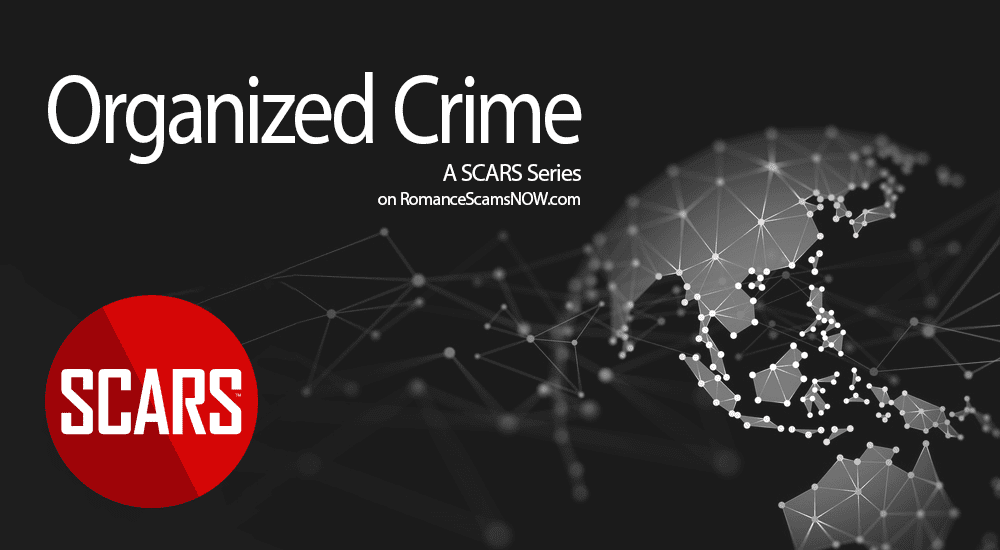



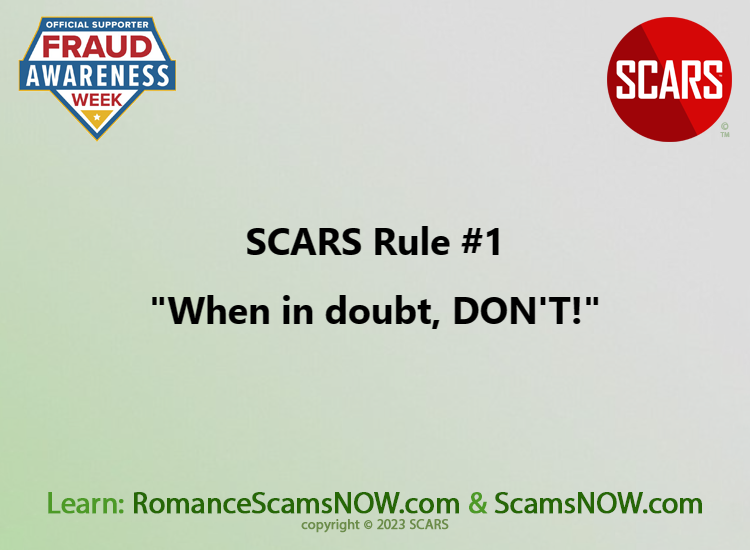
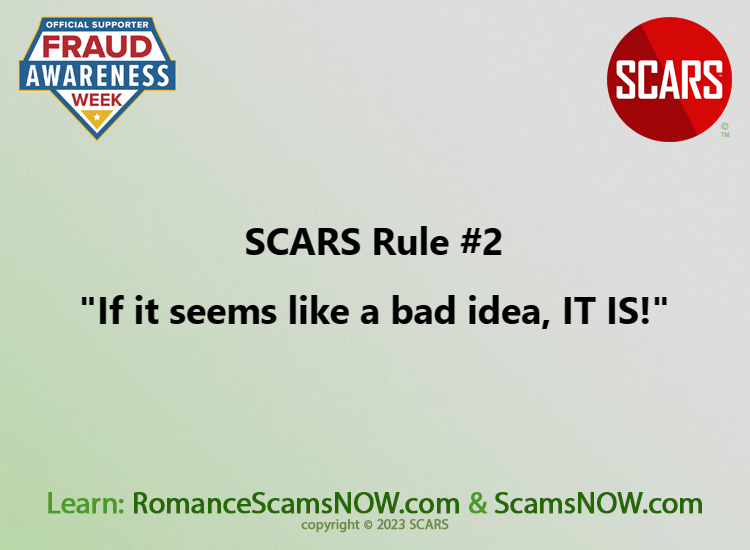
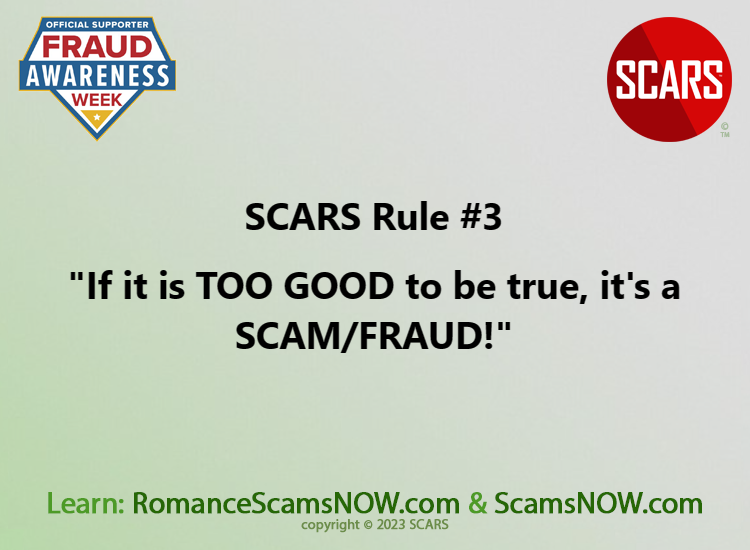
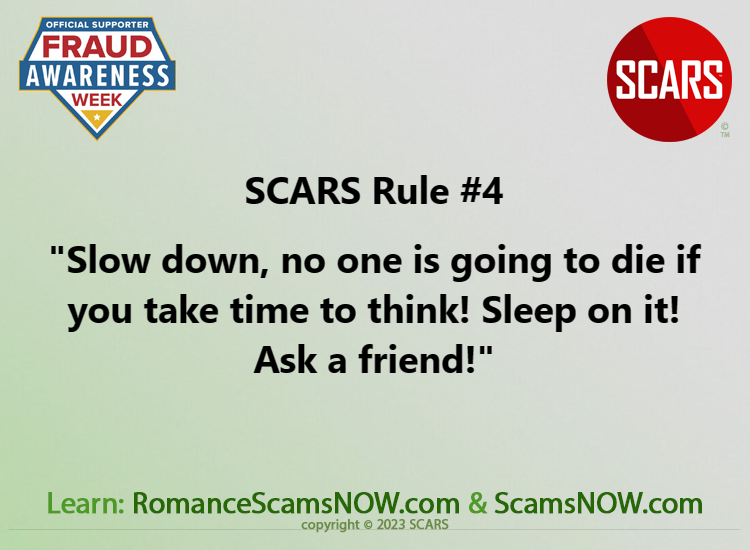
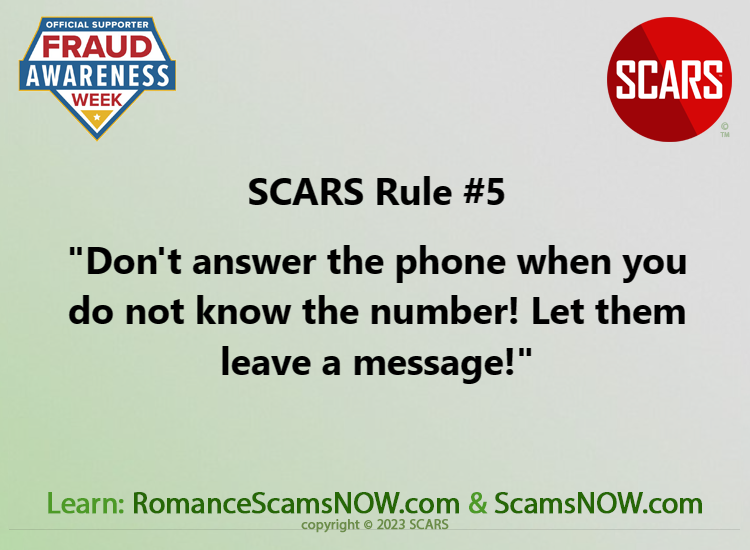
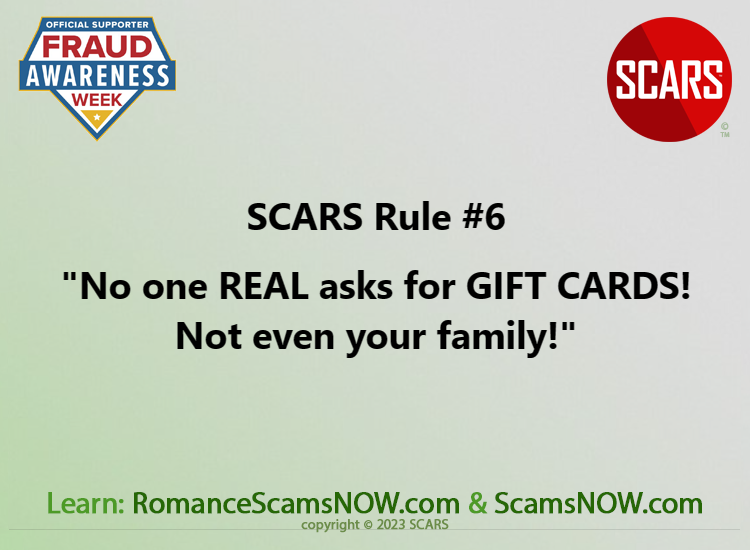

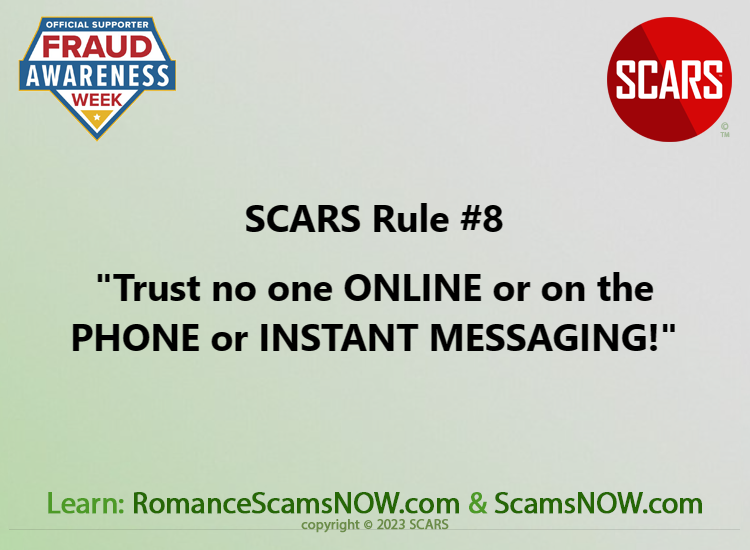
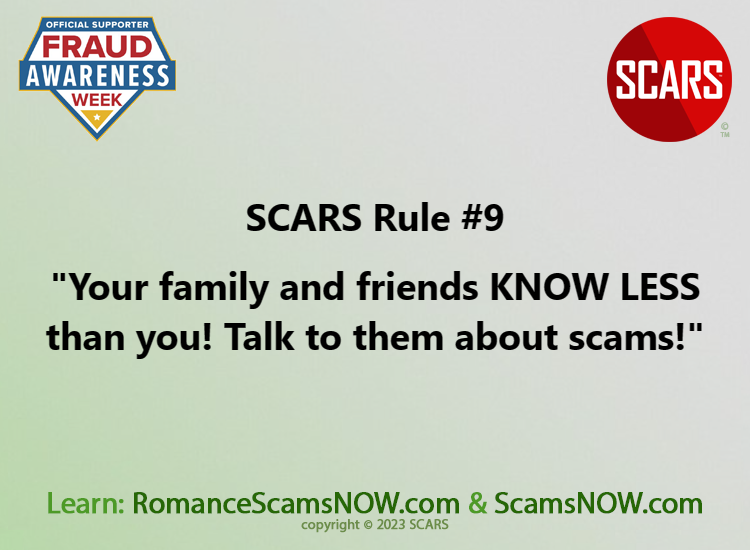
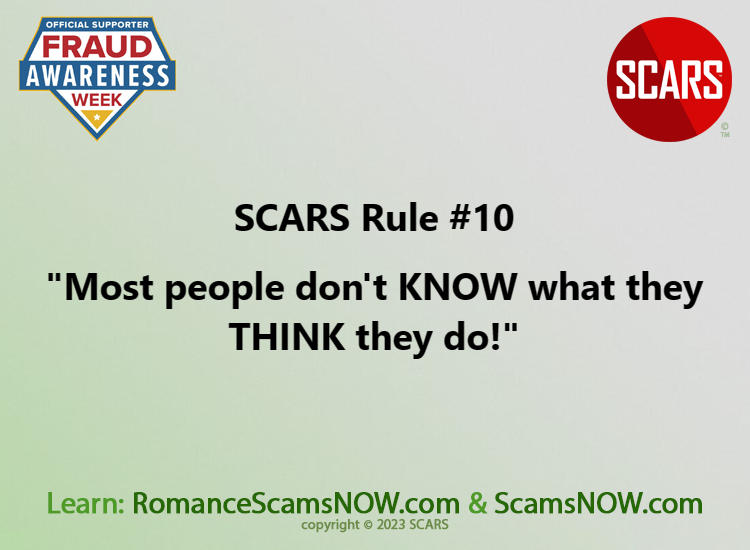


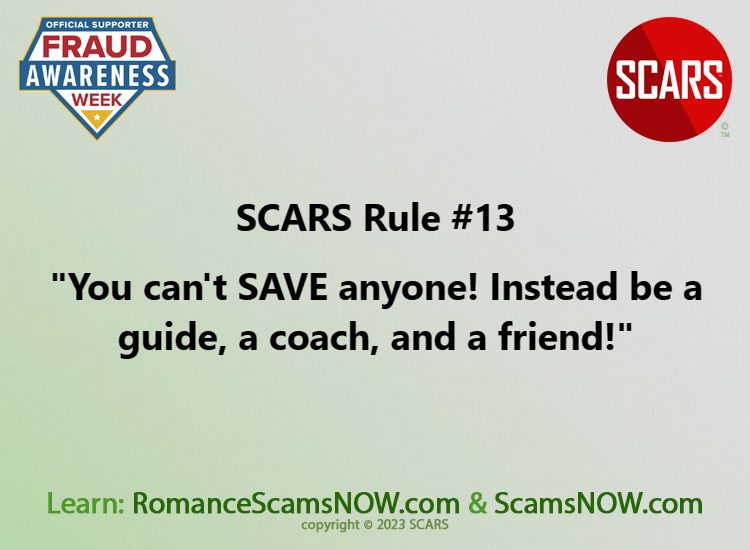
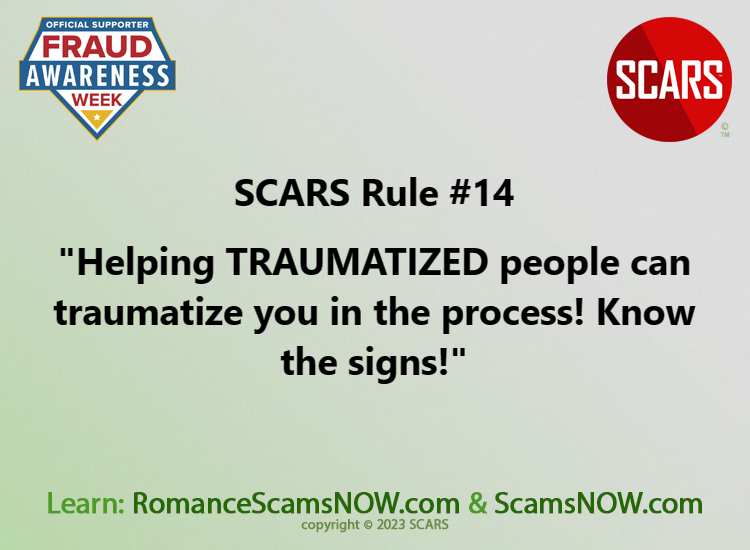
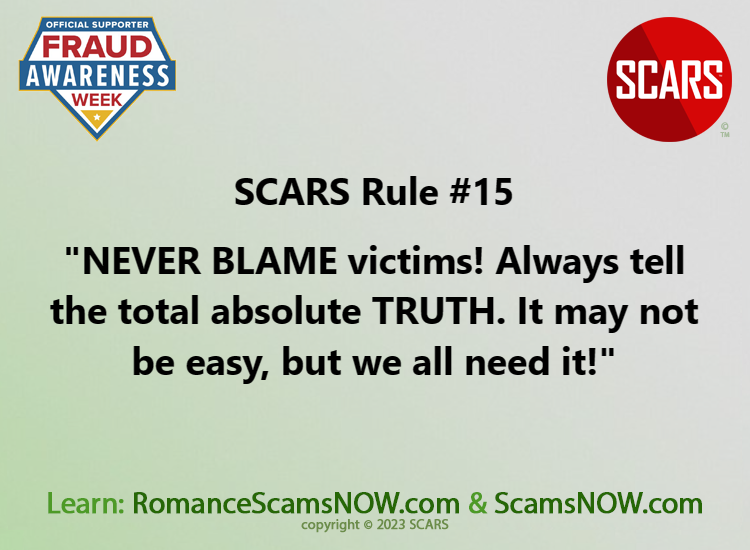

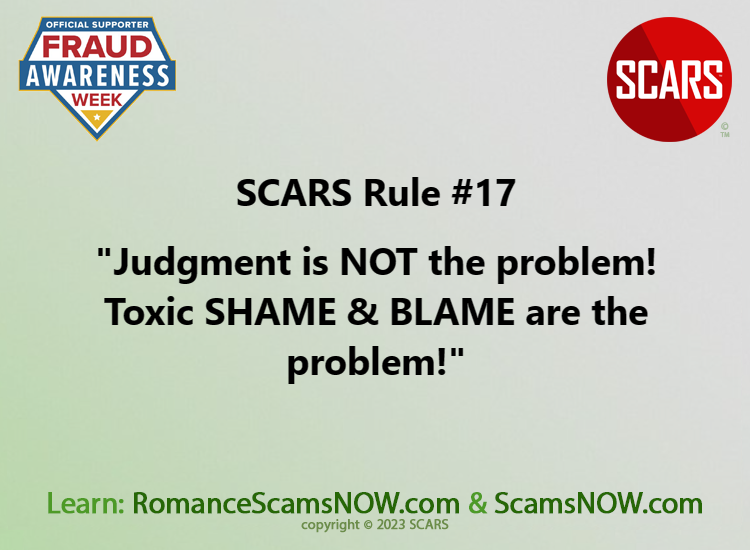
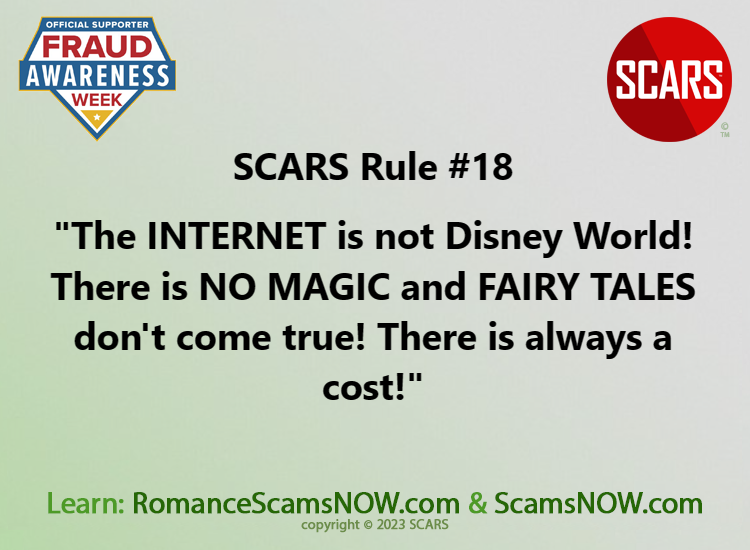
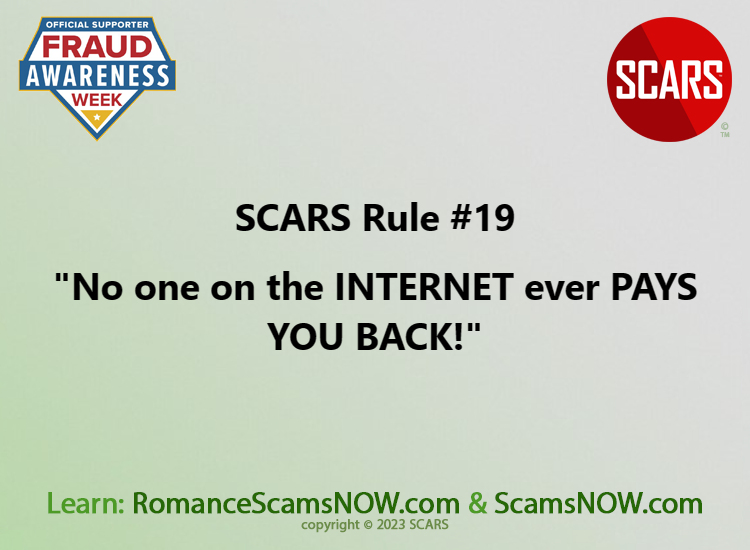











Thank you for your comment. You may receive an email to follow up. We never share your data with marketers.